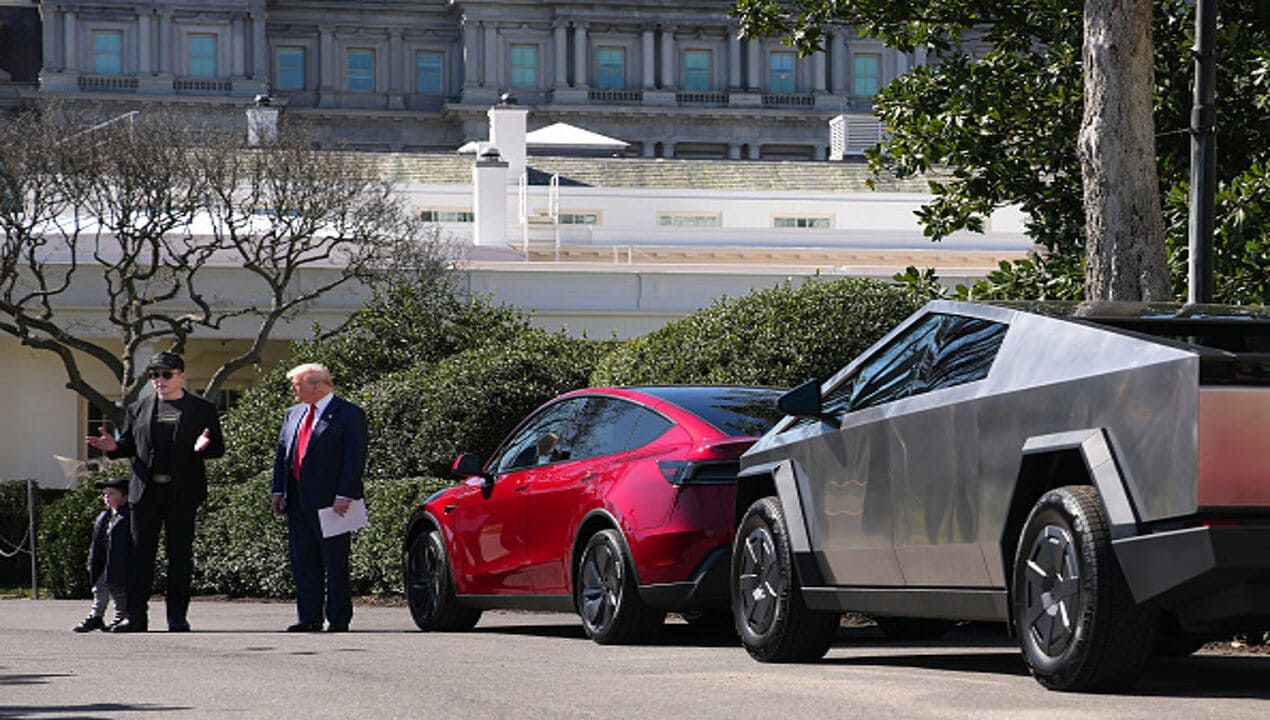
Independent Report – Tesla loyalty has been a defining strength for the company, making it one of the most trusted and preferred automotive brands in the United States. Data showed that in June 2024, Tesla loyalty reached its highest point, with 73% of Tesla-owning households choosing to purchase another Tesla when looking for a new vehicle. This exceptionally high loyalty rate reflected strong customer satisfaction and brand attachment. However, this trend shifted dramatically shortly after when Elon Musk publicly endorsed former President Donald Trump in July 2024. Since then, Tesla loyalty began to decline rapidly, marking a significant change in customer behavior that had rarely been seen before with the brand.
The drop in Tesla loyalty coincided with Musk’s support for Trump, including his involvement in controversial government layoffs, which likely alienated Tesla’s eco-conscious customer base and pushed Tesla loyalty rates below industry averages by early 2025.
Industry experts describe Tesla’s rapid decline in customer loyalty as unprecedented. Tom Libby, an analyst from S&P, noted that such a sharp fall in loyalty within such a short time frame is rare in the automotive sector. Despite efforts by Tesla and Musk to downplay the impact, the timing of the decline strongly suggests that Musk’s political actions alienated part of Tesla’s environmentally conscious customer base. Seth Goldstein, an analyst at Morningstar, pointed out that customers with Democratic political views might now be considering alternative brands beyond Tesla.
Also Read : Jerome Powell Under Fire as Trump Urges Fed Takeover
In addition to the political controversy, Tesla faces growing competition. The company’s model lineup is aging, and the much-anticipated Cybertruck has failed to meet sales expectations despite Musk’s claims of high demand. Rival automakers, including General Motors, Hyundai, and BMW, have introduced a variety of new electric vehicles that challenge Tesla’s once-dominant market position.
Tesla’s Chief Financial Officer, Vaibhav Taneja, highlighted on a recent earnings call that the brand had suffered from vandalism and hostility, which negatively affected its image. Furthermore, production was disrupted for several weeks as factories were updated to manufacture an improved version of the popular Model Y. Nevertheless, Musk expressed confidence that, apart from broader economic challenges, there was no drop in demand for Tesla vehicles.
Globally, Tesla’s sales are declining. In the United States, sales fell by 8% during the first five months of 2025, while European sales dropped by 33% over the first half of the year. The backlash in Europe has been particularly severe due to Musk’s political activities. Analysts like Garrett Nelson from CFRA Research argue that Musk’s political involvement came at an especially bad time, coinciding with rising competition from Chinese electric vehicle manufacturers and traditional automakers. Nelson sees Tesla’s loss of market share as a major concern and stresses the importance of repairing damage to the brand.
Customer loyalty is a key indicator in the auto industry because it costs much more to attract new customers than to retain existing ones. S&P’s detailed vehicle registration data, which tracks actual car purchases in all 50 states, revealed that Tesla’s loyalty rate consistently stayed above 60% from late 2021 until mid-2024. Ford was the only other brand to reach such high loyalty rates, and only briefly.
Before July 2024, Tesla’s ability to attract new customers was exceptional. For every Tesla owner who switched to a different brand, Tesla gained nearly five new households. No other automaker came close to this level of net customer acquisition. Hyundai’s Genesis brand was the next best, with about 2.8 new customers for every one lost. However, since Musk’s political involvement intensified, Tesla’s net customer gain has fallen below two households for every one lost, marking its lowest performance ever.
Brands like Rivian, Polestar, Porsche, and Cadillac have started attracting more Tesla customers than they lose to Tesla. This shift indicates increasing challenges for Tesla in retaining its loyal customer base.
Despite these challenges, some investors remain optimistic about Tesla’s future. Brian Mulberry, a portfolio manager at Zacks Investment Management, believes Tesla’s long-term earnings potential is strong due to its plans to expand robotaxi services and license its self-driving technology. Tesla recently launched a limited robotaxi test in Austin, offering rides to select users. If successful, Mulberry suggests that Tesla might eventually rely less on traditional car sales and more on emerging mobility technologies.
In summary, Tesla’s customer loyalty decline is closely tied to Elon Musk’s political activities and increased competition in the electric vehicle market. While Tesla still leads in U.S. electric vehicle sales, its grip on loyal customers has weakened significantly, signaling challenges ahead for the company’s brand and market position.
Also Read : Song Young-kyu Passes Away After Withdrawing from Latest Drama Project